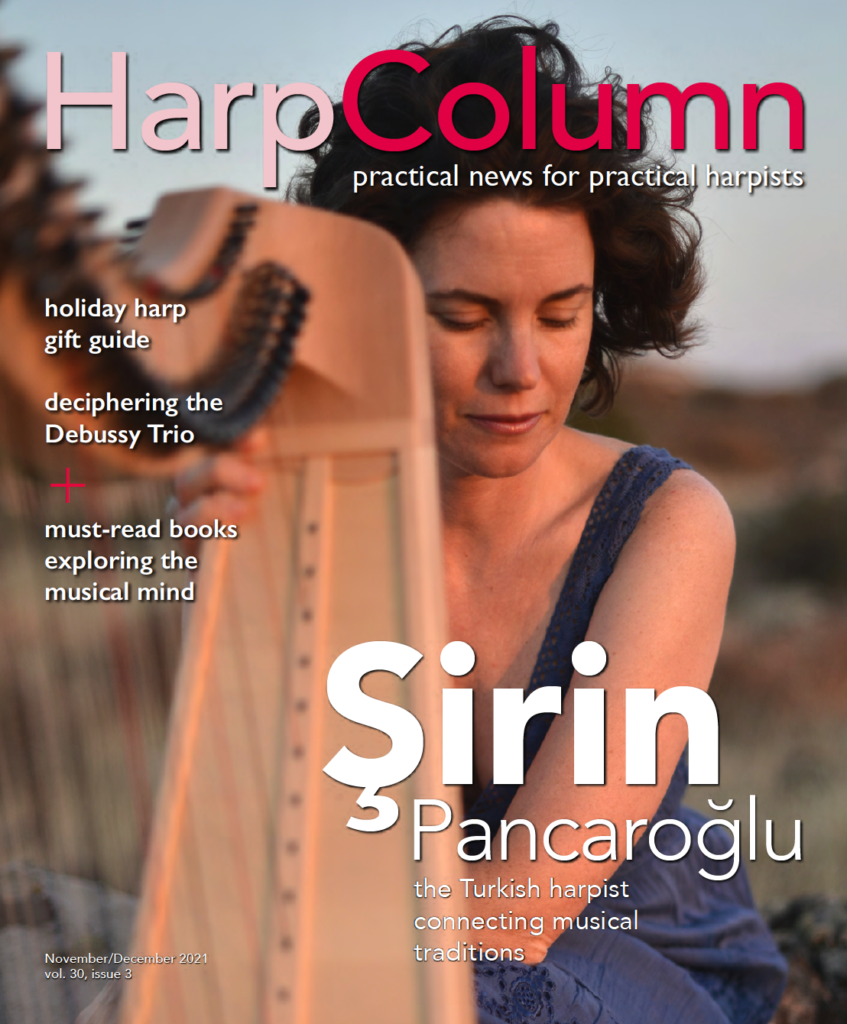What makes a harpist a professional?
This question was posed a few months ago on a popular Facebook group, and upon reading it I immediately felt my stomach drop. Facebook is an incredible place to build and experience community, but it also has the tendency to blind us to each other’s real struggles and individual stories. I found myself heartbroken, frustrated, and outright angered by some of the comments and replies, so carelessly shared. We in the harp community are nothing if not an opinionated group of people, but I hope for a moment you will indulge me as I invite you to open your mind to my answers to this question, as well as my path to those answers.
Being considered a professional harpist doesn’t and shouldn’t require you to jump through the hoops of academia, win a competition, or…be the right kind of harpist.
I have had the unique opportunity to meet and speak with a huge variety of harpists from all backgrounds through Harp Column Podcast (HCP), and if there is one thing I am sure of because of that experience, it is the triggering nature of this question. When I first started HCP all the way back in 2017 I used to start every interview by asking my guest to introduce themselves by saying where they lived, what they did in the harp world, and where they went to school. For me, this seemed obvious, simple, uncomplicated; and for the most part it was—until it wasn’t.
The first time I asked that question and got a complicated answer it became clear to me that I needed to reimagine what it meant to me to be a professional harpist. Here I was, speaking with a completely competent, talented, resourceful, and engaging member of our community about an incredible project they were completing, and with one simple question about schooling I had reduced the value of their story to a single experience, or in this case, lack thereof. Up until that point, my knowledge of other professionals in the community was of harpists who had gone through similar training programs to my own. Simply stated, I was living in an echo chamber of privilege.
I’m not sure that anyone reading this would disagree with me when I say that playing the harp is a privilege. Beyond the financial and locational restrictions of our instrument, having access to the opportunities and support necessary to follow a traditional collegiate training program are limited to only the most privileged few of us. As I read the comments for this post on Facebook, I saw person after person expressing self-doubt at their lack of a degree, while others in our community from a more traditional background, unfortunately, reinforced that doubt. Does a lack of these opportunities, or even just a difference in path constitute the devaluing of a person and their craft? My heart says no.
So what do I think makes a professional harpist? Well, let me take a moment to be the Oprah of the harp world and say, if you…
…play the harp full time in an orchestra, you’re a professional.
…play gigs on the side while maintaining a fulltime job, you’re a professional.
…never had a chance to get a degree in harp but you gig, you’re a professional.
…teach a full studio but don’t play in public, you’re a professional.
…had a full career but are retired now, you’re a professional.
…play lever harp in a folk rock band, you’re a professional.
…never played in orchestra but have your own jazz combo, you’re a professional.
And the list goes on.
Being considered a professional harpist doesn’t and shouldn’t require you to jump through the hoops of academia, win a competition, or to put it simply, be the right kind of harpist. Each of us has our own unique set of skills, talents, and motivations; and we are in turn each our own brand of unique professional.
Ours is a vibrant and exciting community that is small but ever-growing. It is our responsibility as members of that community to lift one another up and to create space and opportunity for others. In my opinion, the greatest sign of professionalism is respect for others in your community. There is room in our profession for people from every walk of life, and we all benefit from each other’s presence.
If you find these thoughts challenging or you find yourself feeling defensive as you read this, I invite you to ask yourself why. I implore you to consider a mentality of abundance; there is room for all in the harp community, and the more we welcome people with open arms rather than judgment, the more abundance and success we will all experience. •






